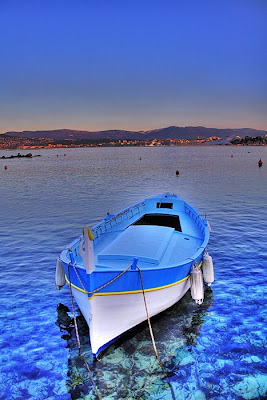 Another week with visitors is going on at a frenetic pace. Trying to get some work done during the morning, with numbers growing increasingly stubborn and almost impossible to be put in order. Evenings are devoted to my sister and her friend who are -I hope- enjoying the city at its freshest, despite of it being July. Then, nights are starting to become that part of the day when I recur to work. My boss is officially out for the rest of the summer and his night e-mails are becoming more and more often. It is of course my fault to be reading them at 3 am.
Another week with visitors is going on at a frenetic pace. Trying to get some work done during the morning, with numbers growing increasingly stubborn and almost impossible to be put in order. Evenings are devoted to my sister and her friend who are -I hope- enjoying the city at its freshest, despite of it being July. Then, nights are starting to become that part of the day when I recur to work. My boss is officially out for the rest of the summer and his night e-mails are becoming more and more often. It is of course my fault to be reading them at 3 am.They say that people in the Mediterranean are under-functioning throughout most of the summer. That it is rather impossible to be expecting work to be done under 40 degrees centigrade with the sea at your doorstep. And although I am a bit reluctant in admitting that generations of Greeks, Spaniards and Italians may not be wrong, I am still trying to put my numbers in order in the middle of July. At the same time I am forcing myself to share the enthusiasm of the friends who are having holiday right next to me, comfort the sadness and frustration of beloved ones that are still very far from their own vacation and cope with all sorts of internal pressure.
You see, at the side of all that, I still read the news every morning (or around noon). And most of the times they are not good. Beautiful places in Greece, suffer from drought, problems with our Slav neighbours of Northern Macedonia, corrupted politics, ignorant voters. Off the front page of the cultural section: the State Orchestra of Greek Music is to be shut down because of lack of funding. This is becoming all too much. "Memory", Sherlock Holmes once said, "is a closet with non-elastic walls. Once you have to stuff it with something, you have to get rid of something else you were keeping in." And although my memory seems to be still working quite well, I am growing more and more anxious to shut it down. And therefore stop thinking about Greek forests going dry and Greek musicians going out of work, while their minister of Culture is going on holiday with his super-rich friends.
Shutting my memory down is still two weeks away -if it even happens then. But until then, frustrated, dizzy and confused I choose to invent a new term for my memory status. I shall therefore fall into "estatization", (as opposed to "hibernation"). I 'll go into this limbo where, I am not supposed to think, or worry about all this, the corresponding of a summer marmot, only instead of sleeping I shall be dreaming awake about the beaches of Andalucia, my friends and glasses of cold beer. And I will listen to the music of the State Orchestra of Greek Music. And I plan to stay there, in my summer laziness, my "estatization", or what we Greeks would call "ραστώνη" until I feel strong enough to confront my numbers and the newspaper headlines again.

